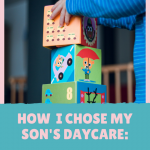 There are so many ways to homeschool, and most homeschoolers will tell you that they don’t question whether or not to homeschool – but rather HOW. I’m not sure exactly what to call what we do, although others have come up with “unschooling”, “learning at home”, “self-directed education” and “child-centered learning,” among others. What we don’t do is have a school at our home. Homeschooling, however referred to, and whatever the methodology, just means that parents are taking on the responsibility of educating their children rather than relying solely on a public or private institution. It doesn’t mean that the child’s learning is literally at a desk in a remote corner of their home.
There are so many ways to homeschool, and most homeschoolers will tell you that they don’t question whether or not to homeschool – but rather HOW. I’m not sure exactly what to call what we do, although others have come up with “unschooling”, “learning at home”, “self-directed education” and “child-centered learning,” among others. What we don’t do is have a school at our home. Homeschooling, however referred to, and whatever the methodology, just means that parents are taking on the responsibility of educating their children rather than relying solely on a public or private institution. It doesn’t mean that the child’s learning is literally at a desk in a remote corner of their home.
Parents not only have the responsibility of making decisions otherwise made by school officials, they also have the privilege of managing the content of their children’s academic pursuits and directing their social activities as well. With parents in charge, children have the opportunity to explore the world around them and learn to act and interact in their environment at their own pace. They are never ahead or behind. Learning and living are meshed – just as Islam is with life, not separate from it. We are not just Muslims at prayer time or on Friday or only on Eid, and children are not just learning from 8:00 to 3:00 inside a building down the road.
For our family, homeschooling provides our children with the opportunity to learn by living and experiencing the world outside of 4 walls. They have regular and meaningful interaction with adults and children of different ages and from all walks of life. Our time is not organized around the hours or holidays of the school. We can visit places during the week that we otherwise couldn’t set a foot in on a crowded weekend. We travel off-peak. We can attend late night activities at the masjid without being concerned about unfinished homework sheets. The kids can eat when they’re hungry, and move when they want, use the bathroom when needed, take naps when they’re exhausted – without waiting for an appointed time or special permission (other than from mom or dad, of course). They can take the time they need to understand a concept or absorb information without having to switch gears at the sound of a bell. Their learning is hands-on and constant.
Other than the usual roundup of parenting skills, a homeschooling parent may just need a little extra patience, more active listening skills, and a keen awareness of their child’s educational development. Beyond that, a degree of resourcefulness comes in handy too. Our communities are filled with people and places to learn from, if we can just take the time and effort to find out. Inevitably, taking on this task also takes accepting less “me-time” and living in a less than show-case-perfect home, as mom’s attention will surely be on other things. A homeschooling parent’s work is also hands-on and constant.
Susan Assaf
Susan lives in Maryland and is a homeschooling mom of 4 growing munchkins.
This post is part of an ongoing series exploring the reasons that families choose different approaches to education. Read an author’s take on public education and stay tuned for other alternative approaches.











